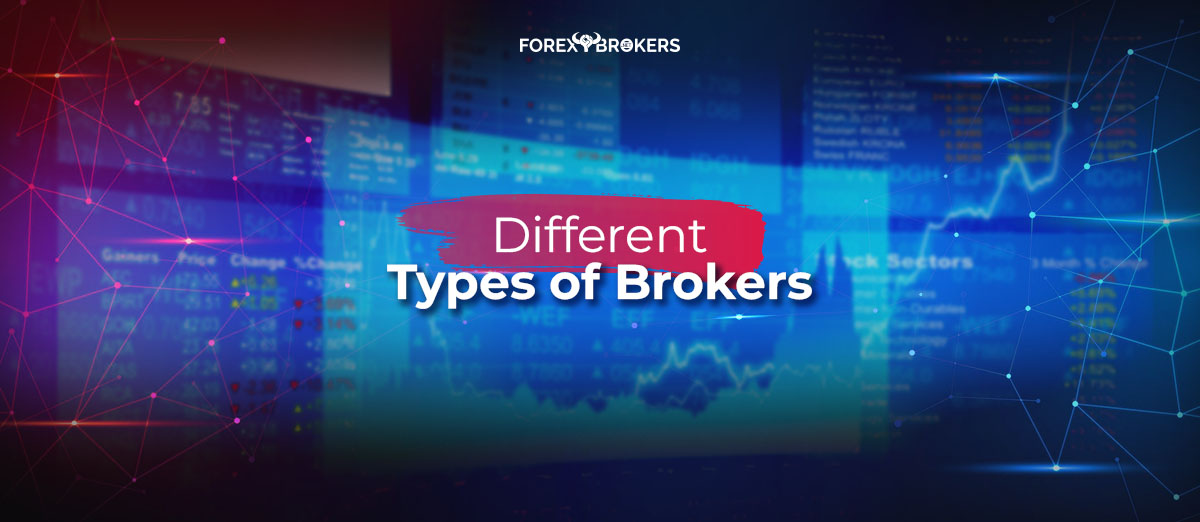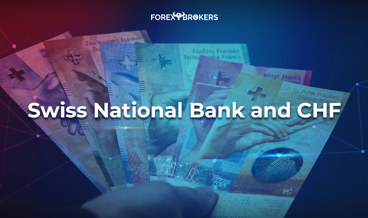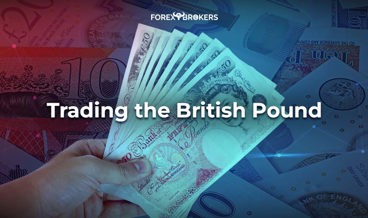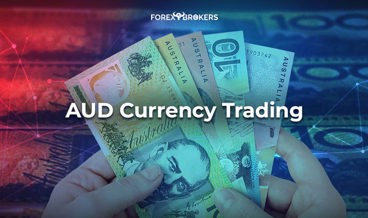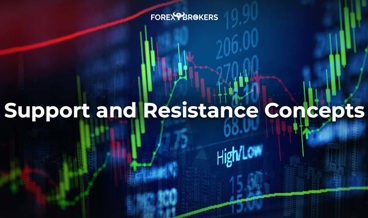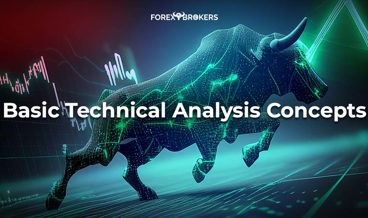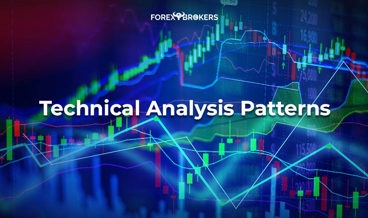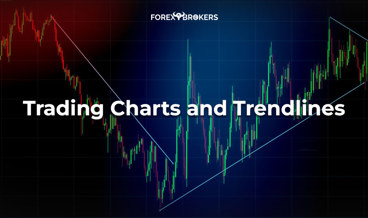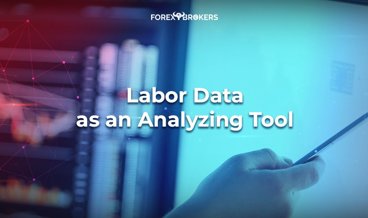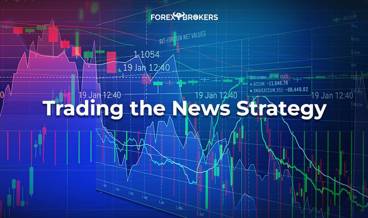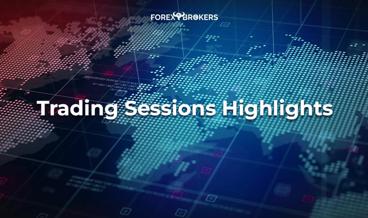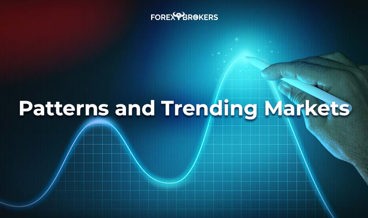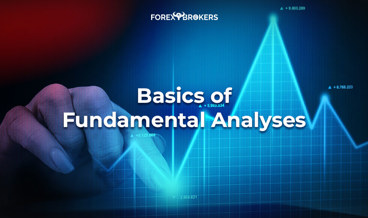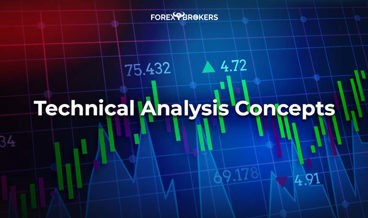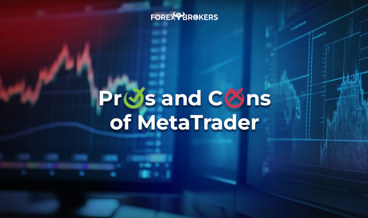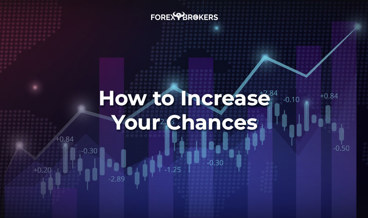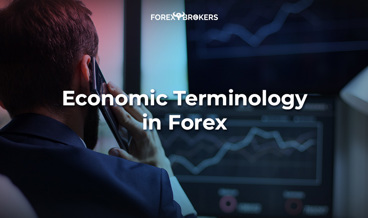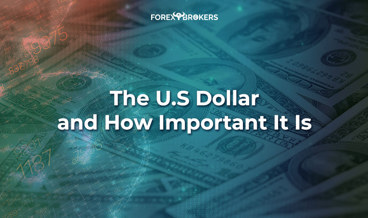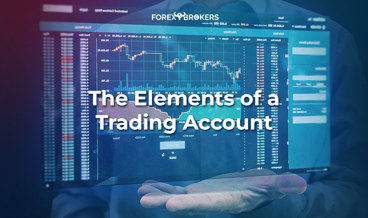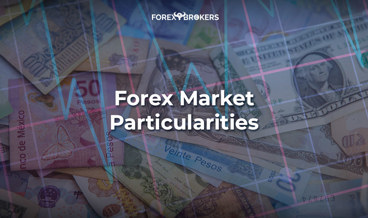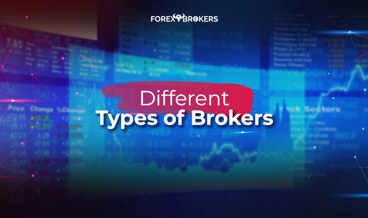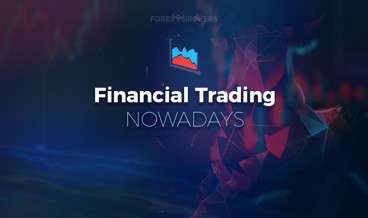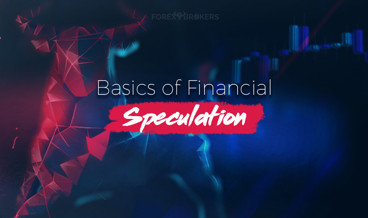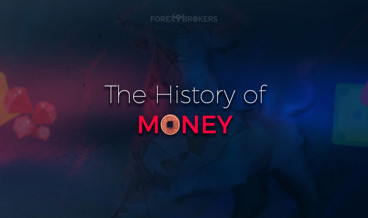As the Internet connects more and more people every day, financial markets attract investors of all types. Online trading is a vast industry growing at an incredibly fast pace.
Trends related to the industry reveal that the retail share of currency trading is on the rise, too. At present, the portion of Forex trading volume belonging to retail traders doesn’t exceed 5 or 6% of the total global volume.
However, 6% of a market evaluated at five trillion dollars a day is hard to ignore. And that 6% is rising!
Therefore, a constant battle exists between the intermediaries to serve the needs of retail traders. Established brokerage houses spotted this opportunity right in front of their eyes and expanded the range of their services to their existing client base.
Other brokers have entered the arena, too, and they keep on coming, attracted by the trends related to online trading that we mentioned above.
Nowadays, setting up a brokerage house and offering online trading services is not complicated at all. Licenses exist, and even the trading platform itself is easy to set up, personalize, and provide to potential customers.
In this article, we cover everything there is to know about brokers and how they represent retail traders. We also investigate financial intermediaries for the institutional trader, but only to note the discrepancy between brokers for retail traders and the big houses.
The reader should emerge with a clear understanding of the following, among other things:
- What a Forex broker is
- The services provided by brokerage houses
- The types of brokers
- The types of trading accounts
- The steps to take to pick the right broker

The Functions of a Brokerage House
Brokers act as agents that fill orders for clients. They intermediate the transactions, often providing liquidity too.
Depending on the liquidity providers associated with the broker, the execution conditions vary. One broker, for instance, may have only one liquidity provider, while another might have more.
Obviously, the more liquidity providers serving the broker, the better it is for the retail trader, as the broker can offer competitive pricing.
But the most essential function of a Forex broker is to represent the client’s interests. Perhaps the best example of brokerage houses doing so was in early 2015.

The SNB Mess
The Swiss National Bank (SNB) used to keep the EURCHF rate pegged at the 1.20 level. For years, it bought every move closer to 1.20 in a desperate attempt to protect CHF’s appreciation.
After accumulating loss after loss and in the wake of the ECB (European Central Bank) starting its QE (quantitative easing, where the central bank buys government bonds), the SNB gave in. It withdrew its support of the 1.20 peg, and mayhem ensued.
CHF rose across the dashboard. In some cases, like with the GBPCHF pair, the gap exceeded several thousand pips. No stop-loss limit can protect traders from such a mess.
As you’ll find out later in this article, brokers guarantee an execution for every order. However, there’s a catch.
The catch is that the guarantee is valid only if there’s a market. If there’s no market, the broker can’t fill the order for the simple reason that there’s no counterparty. Remember that brokers represent the interests of both the buyer and the seller.
In the case of CHF, there was no available market. By the time a market appeared, the losses were already insurmountable in all retail accounts.
But brokerage houses didn’t “go after” their clients’ losses. They quickly understood that the entire industry would be in danger if they sued retail traders for the losses.
Hence, almost all brokers decided to act in favor of retail traders and the industry as a whole and erased the negative balance.
To this day, negative balance protection is one of the benefits offered by Forex brokers, and the SNB mess is just an example of how brokerage houses act in the retail trader’s favor and represent their interests.
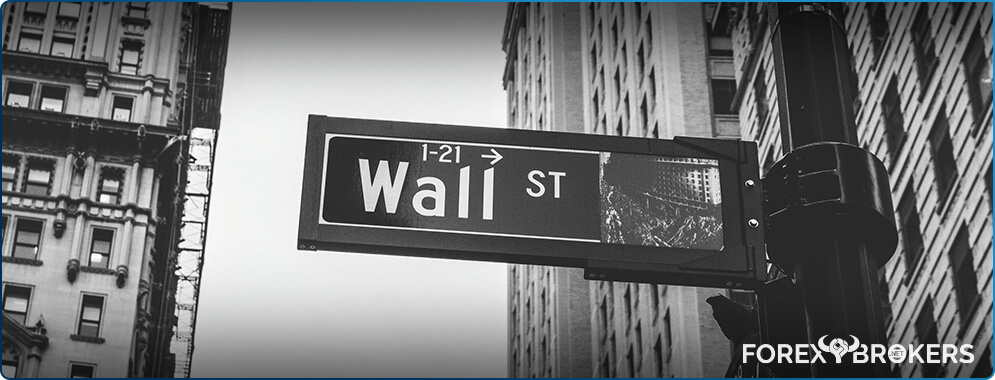
The Main Types of Forex Brokers
The correct name for brokerage houses is “financial intermediaries”. As the name suggests, brokers intermediate access to the financial markets.
Moreover, the term “Forex broker” isn’t correct anymore. Because many other markets (binary options, CFDs [contracts for difference], ETFs [exchange-traded funds], cryptocurrencies, bonds, commodities, futures, etc.) have exploded in popularity, the proportion of Forex business of a brokerage house has decreased over time.
Brokerage houses have multiple options to set up their business. Depending on the products they offer and the clients they target, brokers choose to organize their businesses differently.
Here are the two main categories of Forex brokers that target retail traders:
- Market makers or dealing desks
- Non-dealing desks
Market Makers
Market makers, or dealing desks, create their own market. As the name suggests, market makers “mirror” the actual market.
Using software that links the trading platform to the actual market, dealing desk brokers trade with their clients. Attention here: That’s with their clients, not for their clients.
In other words, traders that open an account with a market maker and place an order to buy or sell a currency pair will deal with the broker. Simply put, the broker takes the other side of the trade.
Effectively, it means that for the trader to make a profit, the broker must take a loss. Similarly, when the trader marks a loss, the broker makes a profit.
There’s nothing wrong with the market-making industry, except perhaps the most important thing: ethics.
Some traders find it at least odd that the broker’s interest is for the trader to lose. It seems that if the interests of the two parties aren’t aligned in the same direction, the partnership can’t work. After all, it is a partnership.
However, some big names in the industry run huge market-making businesses. Because the brokerage house is so big and the pool of traders is so immense, matching the orders of traders (buyers and sellers) is easy, and brokers take only the remaining trades in their books.
Moreover, most traders don’t know whether the broker they use is a market maker or, if they do know, they don’t know what it means for their trades.
The problem with market makers is that the broker calls all the shots. Because these brokers create the market, that means they control the market conditions, too. Therefore, when needed, the broker can “make it difficult” for the trader to win.
- What Some Market Makers Do
As these brokers call all the shots, they can do some things to influence the odds a bit. For instance, one of the most natural things to do is to widen the spreads.
As a reminder, the spread is the difference between the bid and ask prices. When you buy a currency pair, you always use the ask price, while selling is conducted with the bid price.
During volatile events, like a central bank’s press conference or a job report in the United States, the spreads widen significantly. If the broker also gives it a bit of a push, it may be enough to trigger the stop-loss.
The stop-loss placement is an issue for traders using market makers. If brokers know where the stop is, that’s info in their favor, and they’ll do anything to trigger it.
For this reason, it’s no wonder indicators exist that hide the stop-loss level. In other words, the trading platform will execute the stop-loss, but the broker won’t know the level.
Also, some traders avoid using stop-loss orders so that the broker doesn’t know the level. However, that’s a risky approach, as trading without a stop-loss is one of the main ways traders blow their accounts.
Finally, the broker influences the levels during the rollover. Every position held for the next day is subject to rollover. That’s the most illiquid time of the day, at the close of the daily candlestick. With poor liquidity, brokers can widen the spreads extensively, forcing out weak retail traders.
Again, don’t take away from this section that all market makers act like this. The thing to consider is that market makers have a competitive advantage over retail traders, and there’s a thin line between ethics and professional representation.
Non-Dealing Desks
Non-dealing desks are the accurate representation of a brokerage house. Such brokers do not deal with their clients – they merely represent their interests in the market.
Alternative trading systems (ATSs) function like exchanges. However, there’s no regulatory activity over the subscribers to the system. Therefore, ATSs are better known as ECNs (electronic communications networks) or MTFs (multilateral trading facilities).
An ECN broker links retail traders’ orders to liquidity providers. Again, the more liquidity providers, the better.
Linkage takes place via the FIX (Financial Information eXchange) protocol. Basically, the broker provides the retail traders with the prices from the liquidity providers and then routes all the retail traders’ orders to the liquidity providers for execution.
The process ends with the ECN broker automatically executing the orders at the best available price. One can only imagine the sophistication of such a system, as the foreign exchange market is extremely volatile.
Now we can see why having more liquidity providers is in the retail trader’s best interest. If there’s only one liquidity provider that the brokerage house works with, the orders will depend on the prices provided by this one provider only. On the other hand, having access to more liquidity providers builds competition among them. Thus, the ECN broker gets better prices to display to clients.
There’s also a category known as STP (straight-through processing) slightly differs from ECN. However, the idea remains the same, with the broker routing all the orders to liquidity providers.
Market makers and non-dealing desks dominate the retail trading industry. While not the perfect solution, this is the broker house structure you’re most likely to encounter when looking for a Forex broker.
But a real ECN broker is difficult to find for several reasons. For starters, the costs to set up such a business are high.
Hybrid Brokers
Most of today’s Forex brokers run a hybrid business. More precisely, they’re a mix between a market maker and a non-dealing desk.
That’s easy to see when studying the types of trading accounts offered to retail traders. Brokers who advertise fixed spreads are not ECN. They are most likely market makers.
If, on the other hand, a broker advertises ECN but offers fixed spreads, that’s not ECN either. Most of the time, the broker offers some accounts with true ECN conditions and others with a mix between ECN and market-making.
Running an ECN business only has higher costs. The broker earns from a markup added to the spreads.
For this reason, and knowing that most retail traders fail in the end, many ECN brokers run a market-making business too. They deal with clients to benefit from the odds that the traders won’t make it in the long run.
One of the significant hurdles of such brokerage houses is splitting their clients into these two categories. How do they know which client goes where?
The key to running a successful hybrid brokerage business is offering true ECN trading conditions to profitable traders and providing market-making terms to newcomers.
The broker earns fees from the ECN business. Because these traders are profitable and active, the fees are a constant cash flow stream.
The broker profits from the market-making business by taking the other side of clients’ trades. Every lot that the client loses is a profit for the broker.
How Brokers Split Their Clients
So far, we’ve identified the need for brokerage houses that run a hybrid model to split their clients into two categories. But how do brokers know which clients fit where?
The truth is that brokers don’t know. They form an educated guess based on the info the client provides when opening the account.
Some of the questions during the account-opening procedure offer relevant info to brokers. Based on the answers provided, the broker decides which category the trader should go in.
Below are some examples of such questions:
- years of trading experience
- occupation
- the amount of funds intended for deposit
At first glance, these seem irrelevant in determining a trader’s potential profitability. However, as we prove below, reality begs to differ.
- Years of Trading Experience
A trader’s trading experience tells the broker about the market knowledge they have. Some brokers go even further and ask how many trades, roughly, the trader expects to take each day, week, or month.
Statistics reveal that over 90% of traders lose their first deposit within the first six trading months. That is, if they trade actively.
Therefore, if you answer such a question by saying that you have no experience, most likely, the broker will decide to trade against you. After all, statistics say there’s a high probability that you’ll lose your deposit. Hence, the broker will take the other side of the trade.
However, if you have many years of experience, that statistic doesn’t apply anymore. In this case, the broker takes an interest in finding out more info and putting it together before determining the suitable trading conditions.
- Occupation
Occupation matters for several reasons. First, if the trader has a day job (like most retail traders do), that’s a reason for the broker to place them in the market-making business.
The currency market (and every other market offered by a Forex broker) moves on no logic at all and at various times.
While the economic calendar creates volatility at times known in advance (e.g., NFPs [non-farm payrolls] come out every first Friday of the month at 08:30 EST), other times, the market moves dramatically at unexpected times. Thus, trading actively while maintaining a day job is a bit difficult.
In this case, scalping (entering and exiting the market using technical analysis on lower timeframes) doesn’t work. All that remains is swing trading or investing, as the trader has a longer time horizon for the price to reach the take-profit limit.
Second, it helps to have an economic background. Trading on the currency market means comparing two economies.
Often, a currency pair moves based on the economic differences between the two economies it represents. Therefore, strong economic data suggests a possible appreciation for a currency, and weak data suggests a likely depreciation.
The unemployment rate, GDP, business cycle, and other economic terms help a great deal in understanding the state of an economy and, consequently, in positioning oneself on the right side of the market.
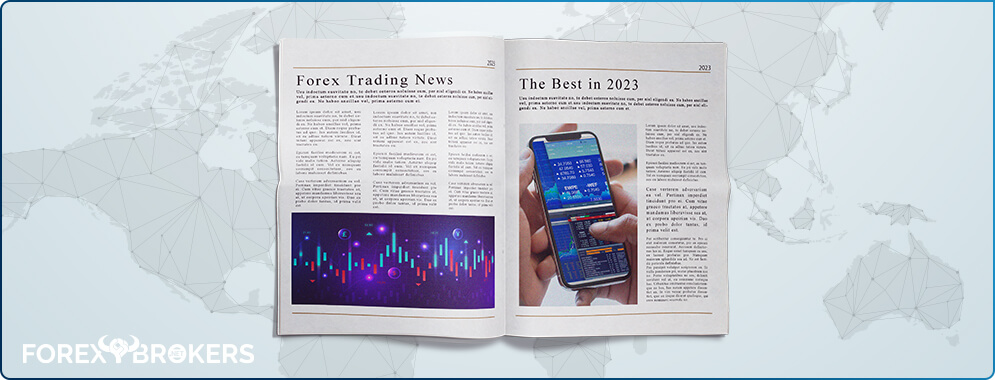
Thus, a retail trader with an economic background has a better chance of surviving in the long run when trading on the currency market.
- Funds to Deposit
Another criterion hybrid brokers use is info related to the funds the trader intends to deposit. If the answer reflects a small amount (e.g., $100, $1000), it’s not enough for ECN trading.
Most rookie retail traders believe they can turn a thousand dollars into a million. It’s not impossible, but it takes time, and everyone wants to make a million bucks fast. Therefore, the likelihood of these traders taking more risks increases, and the next thing you know, they’ve lost the account.
Small amounts deposited into a trading account also suggest the trader does this mostly as a hobby. There’s no impact on the trader’s lifestyle if the account blows up, so the broker decides to run the market-making business.
On the other hand, depositing large amounts implies confidence in beating the market. If the large amount is coupled with an economic background and enough time available to trade, the broker decides to run the ECN business.
Deciding Where to Place the Retail Trader
Most hybrid brokers offer similar conditions to open an account. However, they deal with retail traders differently on accounts that, at first glance, seem identical.
The broker will trade against retail traders if clients’ answers suggest they have a day job, want to fund the account with a small amount, and have no economic background.
On the other hand, a trader with years of experience who trades for a living and is willing to fund a considerable amount to the trading account will fall under the ECN criteria.
Is the FX broker always right? Of course not.
However, this scrutiny helps in most cases. In the cases that it doesn’t, the broker quickly switches the conditions offered.
But why do brokers go to such extremes? The answer comes from the profitability of the brokerage business.
Running a market-making business costs money. Traders build a dedicated trading department active in the currency market.
They need experts, traders on their own, to hedge positions and speculate on the actual market. An expensive process like this requires resources. If it weren’t profitable, most brokerage houses today would not run a hybrid business.
Sources of Income of a Brokerage House
Brokers don’t run charities. This is a business like any other, and it needs to make a profit.
Depending on the type of broker, here are some ways brokers earn an income:
- spreads and commissions
- market makers use both spreads and commissions to charge their clients, but variations do exist depending on the type of trading account
- ECN brokers only use a fee on spreads and typically charge no commission
- profits from trading
- market makers make a profit when trading against retail traders
- no income whatsoever for ECN brokers, as they do not trade against their clients
The two styles listed above are the main ways for brokers to earn profits. However, some other charges also apply.
First, the funding method may or may not provide a cash stream. Some brokers that run huge businesses cut exclusive deals that earn them a small fee on each deposit. For instance, the costs of funding an account via bank wire or credit card differ. Ultimately, the retail trader pays the commissions, but brokers have their cuts too. The same applies to withdrawals.
Second, swaps (the interest rate differential paid or received for keeping positions open overnight) differ from broker to broker. They shouldn’t.
This implies that brokers add something on their own, so they earn a small fee on the swap differential, too.
We won’t go into more details for the moment – we’ll just mention that running a brokerage business is tough. The stiff competition requires a large investment to attract clients, and thus brokers go the extra mile for each penny.
Leverage and What Retail Traders Need to Know
Brokerage houses have multiple functions. Besides granting access to the markets, they also, in some cases, lend traders both funds and shares.
Brokerage houses also offer leverage, which is the ability to trade with a more significant exposure than the funds deposited in the account. For instance, if a broker offers a leverage of 1:30, it means that the trader “moves” on the market the equivalent of thirty times the funds deposited.
Recent regulations in some essential jurisdictions have limited the leverage brokers can offer to the retail segment to 1:30 and, in some cases, even lower.
High leverage leads to higher potential returns, but it also leads to higher potential losses. Because retail traders lack financial knowledge and discipline in most cases, the regulators stepped in and imposed these restrictions.
However, trading with higher leverage is still possible. Brokers, for instance, often register their business in parts of the world where regulation allows for higher leverage, or they advise their clients to take conditions that entitle them to an account that offers high leverage. For instance, in the eurozone and the United Kingdom, traders can have access to 1:400 leverage if they qualify as a professional retail trader.
What Makes You a Professional Retail Trader?
Here’s a list of the conditions to open a professional retail trading account:
- Have traded large positions for the last however many quarters (typically four)
- Typically, ten per quarter
- Have funds in your portfolio that exceed 500k, a combined value of:
- Cash deposits
- Financial assets
- Savings accounts
- Options
- Shares
- Equities
- Investments in funds
- Have a minimum of one year of experience working in the financial system
These conditions differ from broker to broker but, on average, represent what the professional investor must have. However, access to such a qualification comes with some drawbacks, too.
For instance, if you’re a retail trader with a professional account, you need to notify your broker if conditions change and you no longer meet that status.
Also, while most brokers maintain the benefits of the average trading account (e.g., fund segregation, best execution, balance protection, etc.), the professional status waives the leverage restriction, prescribed risk warning, and restriction on incentives.
In the end, the client decides what type of trader to be. Based on the trader’s needs and trading style, as well as the markets available, there’s a plethora of options and brokerage houses to consider.
We may say that the benefits of being a professional retail trader outweigh those of the regular retail trader status. However, the regulations in place exist to make sure that the trader fully understands the risk involved and has knowledge and experience in the trading area.
Having a professional retail trading account entitles you to file complaints directly with the financial regulator and, in some cases, to benefit from additional insurance for the funds in your trading account (depending on the broker).
Professional retail traders have the broker’s ear. Brokers earn from commissions and other fees, and all brokers have a keen interest in serving successful traders.
The Two Main Challenges Any Forex Broker Has
Every brokerage house faces two main challenges: increasing the client retention rate and finding new ones.
The approaches to reaching these two goals differ. On the one hand, retaining inactive clients doesn’t help. If they don’t trade, they don’t generate revenue.
Therefore, at this point, brokers need to concentrate on keeping clients active. To stimulate trading when market volatility is low (holidays, summer, etc.), brokers offer all kinds of incentives (bonuses, special conditions, etc.).
Some brokers go to extreme lengths and offer personalized conditions to their clients in terms of spreads and commissions. The idea is to keep the business running and the trader active.
To find new customers, brokers invest in advertising. At some point, advertising travels from mouth to mouth, but even big houses invest massively in sponsoring celebrities or sports teams (e.g., soccer teams).
By doing so, brokers increase awareness and come closer to gaining potential clients.
What Makes a Good Broker and How to Pick the Right One
Slowly but surely, we are moving toward the end of this article. By now, you should have a solid idea of what a Forex broker is, what they do for a living, and how they function.
However, we still need to address the most crucial question for the retail trader: how to pick the right Forex broker.
The answer to this question is complicated. It starts with traders knowing what they bring to the trading table.
- A Few Things to Consider
If you treat trading as a hobby and just want to play with some numbers for fun, the broker’s choice won’t affect your bottom line. But if you’re serious about trading, investing, financial markets, economic topics, and making a profit, then here’s a list to consider when deciding which broker to trade with:
- Regulation
- Always trade with a regulated broker.
- Regulated brokers follow the rules set by the relevant regulatory body regarding leverage, fund segregation, data confidentiality, and so on.
- Should a broker go against the regulations, the financial authority steps in to protect the trader’s interests.
- Fund segregation
- Brokers who offer fund segregation (they all should) can’t touch clients’ funds to pay for other clients’ withdrawals or use them in any other way.
- Typically, brokers segregate the funds in a custodial bank via a partnership with that institution.
- Brokers that offer segregated funds are preferred.
- Fees on depositing conditions
- The lower, the better.
- If possible, look for brokers with no such fees.
- The types of trading accounts
- The more types, the better.
- Look for accounts with no commissions and only variable spreads, as they suggest ECN conditions.
- The trading platform
- All brokers offer a wide range of trading platforms, from the popular MT4 (MetaTrader 4) to online trading platforms and other types.
- The more options, the better, with MT4 mandatory.
- Markets to trade
- Brokerage houses don’t offer access only to the currency market anymore.
- Look for access to as many markets as possible, ideally:
- bonds
- a wide range of commodity markets
- futures
- options
- cryptocurrencies
- indices
- ETFs
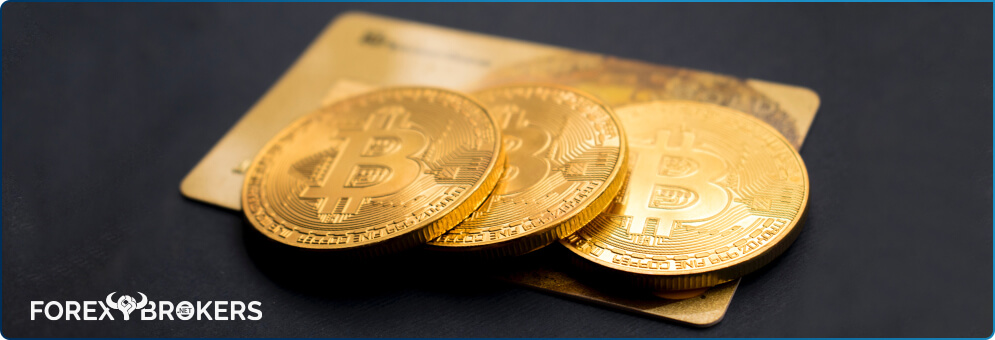
The Ideal Forex Broker
The ideal broker is regulated across various international jurisdictions and runs a big trading business under 100% no-dealing desk conditions.
Such a broker is a partner for the trader, giving advice (not financial!) about the best approach to trading on the market and limiting the associated trading costs.
An ideal broker grants access to all financial markets and has small commissions and fees.
A broker like this has multiple liquidity providers, picking the prices to offer to clients from a liquidity pool that ensures traders can buy or sell at any time they want to trade.
The perfect Forex broker is not only a Forex broker, and their client representative always stays in touch.
The ideal broker informs the trader about upcoming changes that may affect trading conditions, keeping the trader on the right path by offering incentives to trade without pushing the sale process.
After all, a profitable and active trader is the bread and butter for the broker, who lives from the generated fees. Such brokers advise traders on the tax regimes around the world and how to best fill out their taxes.
The ideal brokerage house treats each client equally and always invests in new technologies to improve its business model.
Does the ideal broker, as described here, even exist? If not, that’s where the industry is headed because stiff competition will eliminate the brokerage houses that do not put their clients’ interests first.
Conclusion
Picking the right broker is not easy. In fact, choosing the right broker is crucial, even for the outcome of a trading strategy.
For instance, not all brokers offer the same market data. Some daily candlesticks close earlier or later than others. Thus, the bottom line of a trading strategy differs from broker to broker.
The things mentioned in this article are meant to give traders an idea about the world of trading viewed from the broker’s eyes. It is all about money and profitability, both in the case of the broker and the trader.
Therefore, picking the right broker depends on your trading style and strategy as well as on the conditions offered by the brokerage house.
An informed trader is a winning one, and this article covers everything there is to know about today’s brokerage houses.
The next topic of this trading academy covers some of the particularities of the Forex market – in other words, things to know before even opening your first buy or sell trade.
